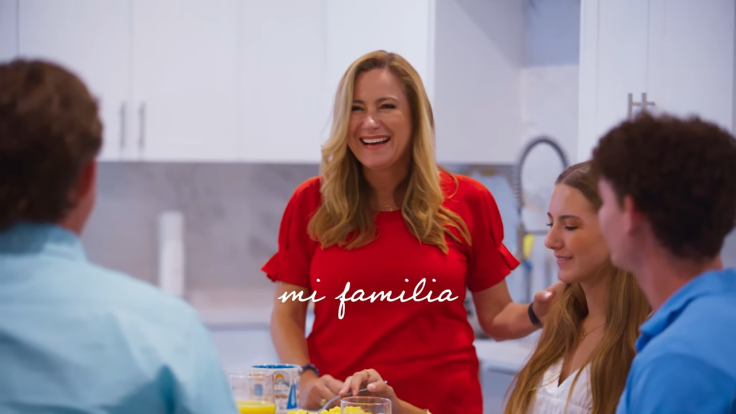
A few days ago, Democrat Debbie Mucarsel-Powell, who is looking to unseat Republican Rick Scott as Florida Senate representative, launched an ad that highlights her Hispanic roots. The 30-second video recounts how her mother's immigration story allowed them to experience the American Dream and how that dream is in jeopardy if Scott is reelected. The kicker? The ad was entirely in Spanish.
The piece is just the latest example in the Ecuadorian-American's efforts to gain the support of the 3.3 million eligible Latino voters in Florida. She also launched two WhatsApp channel, one in English and the other in Spanish.
Not to be outdone, Scott, who speaks fluent Spanish released a series of four television and radio ads earlier in the year and a super PAC backing Scott is airing an ad in Spanish in the Orlando market this week, according to Islander News.
But how effective are Spanish-spoken outreach strategies in Florida? A report from the UCLA Latino Policy and Politics Institute just revealed that it might just be the key to winning the election.
The report highlights that a significant portion of Latino voters are Spanish speakers, with 80% of Latino eligible voters in the state speaking Spanish, including 30% who speak only Spanish. This trend is particularly pronounced in Miami-Dade County, where over 90% of Latinos are Spanish speakers.
Findings also reveal that half of Latino eligible voters in Florida are bilingual and could be effectively reached in both English and Spanish. However, in Miami-Dade County, fewer than 10% of Latinos speak only English, while 40% speak only Spanish. Given the close competition in Florida's Senate race, with Election Day approaching in eight weeks, investment in Spanish-language media could prove decisive.
"Significantly more Latinos speak Spanish (and speak only Spanish) in Florida and in areas like Miami-Dade County than in the U.S., so Spanish language campaign materials will be crucial to reaching and engaging the Latino population," said Juliana Phan, co-author of the report.
The emphasis on Spanish-language outreach comes as the race between Scott and Mucarsel-Powell remains tight. Recent polls show conflicting results, with one survey giving Scott a five-point lead and another showing the race as nearly tied. Although a Morning Consult survey released Monday shows Scott with a five-point edge, a poll released by Emerson College last week showed the Senate race in a virtual tie, with Scott up by just a single point, 46%-45%.
Scott has focused much of his Spanish-language advertising on portraying Mucarsel-Powell as a "socialist," a tactic often used against Democrats in South Florida, where many voters have fled socialist regimes in countries like Cuba, Venezuela, and Nicaragua. Mucarsel-Powell, who recently said Scott exploits the trauma of Latino dictatorships, has challenged Scott to a debate exclusively in Spanish.
The UCLA report, drawing on data from the Latino Data Hub and the 2022 American Community Survey, also highlights the diversity and political fluidity among Latino voters in Florida. While 33% of Latino voters are affiliated with the Democratic Party, 28% align with the Republican Party, and 39% are independents.
© 2024 Latin Times. All rights reserved. Do not reproduce without permission.









